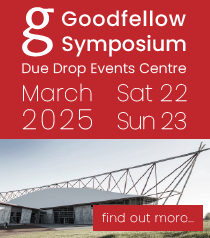Error message
Warning: rename(sites/default/files/php/twig/.gTb1IquLvI6VnAhuWTun0eDlF6c,sites/default/files/php/twig/6772d4670ef38_image-style.html.twig_Pm_Tlcso7CsqnoJ5EbXHRjBVX/T45ff9-SOZivWAUy6GhFo-EJYOyDCOw4oDDyAWE3toI.php): No such file or directory in
Drupal\Component\PhpStorage\MTimeProtectedFastFileStorage->save() (line
88 of
core/lib/Drupal/Component/PhpStorage/MTimeProtectedFastFileStorage.php).
Drupal\Component\PhpStorage\MTimeProtectedFastFileStorage->save('6772d4670ef38_image-style.html.twig_Pm_Tlcso7CsqnoJ5EbXHRjBVX', '<?php
use Twig\Environment;
use Twig\Error\LoaderError;
use Twig\Error\RuntimeError;
use Twig\Extension\SandboxExtension;
use Twig\Markup;
use Twig\Sandbox\SecurityError;
use Twig\Sandbox\SecurityNotAllowedTagError;
use Twig\Sandbox\SecurityNotAllowedFilterError;
use Twig\Sandbox\SecurityNotAllowedFunctionError;
use Twig\Source;
use Twig\Template;
/* core/modules/image/templates/image-style.html.twig */
class __TwigTemplate_dd4cfc60374c6b9ef89eababda845430 extends \Twig\Template
{
private $source;
private $macros = [];
public function __construct(Environment $env)
{
parent::__construct($env);
$this->source = $this->getSourceContext();
$this->parent = false;
$this->blocks = [
];
$this->sandbox = $this->env->getExtension('\Twig\Extension\SandboxExtension');
$this->checkSecurity();
}
protected function doDisplay(array $context, array $blocks = [])
{
$macros = $this->macros;
// line 20
echo $this->extensions['Drupal\Core\Template\TwigExtension']->escapeFilter($this->env, $this->sandbox->ensureToStringAllowed(($context["image"] ?? null), 20, $this->source), "html", null, true);
echo "
";
}
public function getTemplateName()
{
return "core/modules/image/templates/image-style.html.twig";
}
public function isTraitable()
{
return false;
}
public function getDebugInfo()
{
return array ( 39 => 20,);
}
public function getSourceContext()
{
return new Source("", "core/modules/image/templates/image-style.html.twig", "/srv/www/web/core/modules/image/templates/image-style.html.twig");
}
public function checkSecurity()
{
static $tags = array();
static $filters = array("escape" => 20);
static $functions = array();
try {
$this->sandbox->checkSecurity(
[],
['escape'],
[]
);
} catch (SecurityError $e) {
$e->setSourceContext($this->source);
if ($e instanceof SecurityNotAllowedTagError && isset($tags[$e->getTagName()])) {
$e->setTemplateLine($tags[$e->getTagName()]);
} elseif ($e instanceof SecurityNotAllowedFilterError && isset($filters[$e->getFilterName()])) {
$e->setTemplateLine($filters[$e->getFilterName()]);
} elseif ($e instanceof SecurityNotAllowedFunctionError && isset($functions[$e->getFunctionName()])) {
$e->setTemplateLine($functions[$e->getFunctionName()]);
}
throw $e;
}
}
}
') (Line: 112)
Drupal\Core\Template\TwigPhpStorageCache->write('6772d4670ef38_image-style.html.twig_Pm_Tlcso7CsqnoJ5EbXHRjBVX', '<?php
use Twig\Environment;
use Twig\Error\LoaderError;
use Twig\Error\RuntimeError;
use Twig\Extension\SandboxExtension;
use Twig\Markup;
use Twig\Sandbox\SecurityError;
use Twig\Sandbox\SecurityNotAllowedTagError;
use Twig\Sandbox\SecurityNotAllowedFilterError;
use Twig\Sandbox\SecurityNotAllowedFunctionError;
use Twig\Source;
use Twig\Template;
/* core/modules/image/templates/image-style.html.twig */
class __TwigTemplate_dd4cfc60374c6b9ef89eababda845430 extends \Twig\Template
{
private $source;
private $macros = [];
public function __construct(Environment $env)
{
parent::__construct($env);
$this->source = $this->getSourceContext();
$this->parent = false;
$this->blocks = [
];
$this->sandbox = $this->env->getExtension('\Twig\Extension\SandboxExtension');
$this->checkSecurity();
}
protected function doDisplay(array $context, array $blocks = [])
{
$macros = $this->macros;
// line 20
echo $this->extensions['Drupal\Core\Template\TwigExtension']->escapeFilter($this->env, $this->sandbox->ensureToStringAllowed(($context["image"] ?? null), 20, $this->source), "html", null, true);
echo "
";
}
public function getTemplateName()
{
return "core/modules/image/templates/image-style.html.twig";
}
public function isTraitable()
{
return false;
}
public function getDebugInfo()
{
return array ( 39 => 20,);
}
public function getSourceContext()
{
return new Source("", "core/modules/image/templates/image-style.html.twig", "/srv/www/web/core/modules/image/templates/image-style.html.twig");
}
public function checkSecurity()
{
static $tags = array();
static $filters = array("escape" => 20);
static $functions = array();
try {
$this->sandbox->checkSecurity(
[],
['escape'],
[]
);
} catch (SecurityError $e) {
$e->setSourceContext($this->source);
if ($e instanceof SecurityNotAllowedTagError && isset($tags[$e->getTagName()])) {
$e->setTemplateLine($tags[$e->getTagName()]);
} elseif ($e instanceof SecurityNotAllowedFilterError && isset($filters[$e->getFilterName()])) {
$e->setTemplateLine($filters[$e->getFilterName()]);
} elseif ($e instanceof SecurityNotAllowedFunctionError && isset($functions[$e->getFunctionName()])) {
$e->setTemplateLine($functions[$e->getFunctionName()]);
}
throw $e;
}
}
}
') (Line: 409)
Twig\Environment->loadClass('__TwigTemplate_dd4cfc60374c6b9ef89eababda845430', 'core/modules/image/templates/image-style.html.twig', NULL) (Line: 381)
Twig\Environment->loadTemplate('core/modules/image/templates/image-style.html.twig') (Line: 55)
twig_render_template('core/modules/image/templates/image-style.html.twig', Array) (Line: 384)
Drupal\Core\Theme\ThemeManager->render('image_style', Array) (Line: 433)
Drupal\Core\Render\Renderer->doRender(Array, ) (Line: 204)
Drupal\Core\Render\Renderer->render(Array) (Line: 479)
Drupal\Core\Template\TwigExtension->escapeFilter(Object, Array, 'html', NULL, 1) (Line: 48)
__TwigTemplate_0d71867c28a362b606f0232bfb8ecd88->doDisplay(Array, Array) (Line: 405)
Twig\Template->displayWithErrorHandling(Array, Array) (Line: 378)
Twig\Template->display(Array) (Line: 390)
Twig\Template->render(Array) (Line: 55)
twig_render_template('core/modules/image/templates/image-formatter.html.twig', Array) (Line: 384)
Drupal\Core\Theme\ThemeManager->render('image_formatter', Array) (Line: 433)
Drupal\Core\Render\Renderer->doRender(Array, ) (Line: 204)
Drupal\Core\Render\Renderer->render(Array) (Line: 479)
Drupal\Core\Template\TwigExtension->escapeFilter(Object, Array, 'html', NULL, 1) (Line: 251)
__TwigTemplate_dca7b4ff9ccc9e8fae56d0d0c5a50613->macro_content(Array, Array, Object) (Line: 1169)
twig_call_macro(Object, 'macro_content', Array, 58, Array, Object) (Line: 187)
__TwigTemplate_dca7b4ff9ccc9e8fae56d0d0c5a50613->macro_field(Array, Array, 'Image', Object, Object, Object, Object, 1, Array) (Line: 1169)
twig_call_macro(Object, 'macro_field', Array, 28, Array, Object) (Line: 83)
__TwigTemplate_dca7b4ff9ccc9e8fae56d0d0c5a50613->doDisplay(Array, Array) (Line: 405)
Twig\Template->displayWithErrorHandling(Array, Array) (Line: 378)
Twig\Template->display(Array) (Line: 390)
Twig\Template->render(Array) (Line: 55)
twig_render_template('modules/contrib/ds/templates/ds-field-expert.html.twig', Array) (Line: 384)
Drupal\Core\Theme\ThemeManager->render('field', Array) (Line: 433)
Drupal\Core\Render\Renderer->doRender(Array) (Line: 446)
Drupal\Core\Render\Renderer->doRender(Array) (Line: 446)
Drupal\Core\Render\Renderer->doRender(Array, ) (Line: 204)
Drupal\Core\Render\Renderer->render(Array) (Line: 479)
Drupal\Core\Template\TwigExtension->escapeFilter(Object, Array, 'html', NULL, 1) (Line: 51)
__TwigTemplate_f7288a0ed9f00f45741d629563f8310e->doDisplay(Array, Array) (Line: 405)
Twig\Template->displayWithErrorHandling(Array, Array) (Line: 378)
Twig\Template->display(Array) (Line: 390)
Twig\Template->render(Array) (Line: 55)
twig_render_template('modules/contrib/ds/templates/ds-1col.html.twig', Array) (Line: 384)
Drupal\Core\Theme\ThemeManager->render('ds_1col', Array) (Line: 433)
Drupal\Core\Render\Renderer->doRender(Array, ) (Line: 204)
Drupal\Core\Render\Renderer->render(Array) (Line: 479)
Drupal\Core\Template\TwigExtension->escapeFilter(Object, Array, 'html', NULL, 1) (Line: 39)
__TwigTemplate_2a24416c72b556c6672e8e2e26c2cb9b->doDisplay(Array, Array) (Line: 405)
Twig\Template->displayWithErrorHandling(Array, Array) (Line: 378)
Twig\Template->display(Array) (Line: 390)
Twig\Template->render(Array) (Line: 55)
twig_render_template('modules/contrib/ds/templates/ds-entity-view.html.twig', Array) (Line: 384)
Drupal\Core\Theme\ThemeManager->render('ds_entity_view', Array) (Line: 433)
Drupal\Core\Render\Renderer->doRender(Array, ) (Line: 204)
Drupal\Core\Render\Renderer->render(Array) (Line: 479)
Drupal\Core\Template\TwigExtension->escapeFilter(Object, Array, 'html', NULL, 1) (Line: 251)
__TwigTemplate_dca7b4ff9ccc9e8fae56d0d0c5a50613->macro_content(Array, Array, Object) (Line: 1169)
twig_call_macro(Object, 'macro_content', Array, 58, Array, Object) (Line: 187)
__TwigTemplate_dca7b4ff9ccc9e8fae56d0d0c5a50613->macro_field(Array, Array, 'Presenter', Object, Object, Object, Object, 1, Array) (Line: 1169)
twig_call_macro(Object, 'macro_field', Array, 28, Array, Object) (Line: 83)
__TwigTemplate_dca7b4ff9ccc9e8fae56d0d0c5a50613->doDisplay(Array, Array) (Line: 405)
Twig\Template->displayWithErrorHandling(Array, Array) (Line: 378)
Twig\Template->display(Array) (Line: 390)
Twig\Template->render(Array) (Line: 55)
twig_render_template('modules/contrib/ds/templates/ds-field-expert.html.twig', Array) (Line: 384)
Drupal\Core\Theme\ThemeManager->render('field', Array) (Line: 433)
Drupal\Core\Render\Renderer->doRender(Array) (Line: 446)
Drupal\Core\Render\Renderer->doRender(Array) (Line: 446)
Drupal\Core\Render\Renderer->doRender(Array, ) (Line: 204)
Drupal\Core\Render\Renderer->render(Array) (Line: 479)
Drupal\Core\Template\TwigExtension->escapeFilter(Object, Array, 'html', NULL, 1) (Line: 51)
__TwigTemplate_f7288a0ed9f00f45741d629563f8310e->doDisplay(Array, Array) (Line: 405)
Twig\Template->displayWithErrorHandling(Array, Array) (Line: 378)
Twig\Template->display(Array) (Line: 390)
Twig\Template->render(Array) (Line: 55)
twig_render_template('modules/contrib/ds/templates/ds-1col.html.twig', Array) (Line: 384)
Drupal\Core\Theme\ThemeManager->render('ds_1col', Array) (Line: 433)
Drupal\Core\Render\Renderer->doRender(Array, ) (Line: 204)
Drupal\Core\Render\Renderer->render(Array) (Line: 479)
Drupal\Core\Template\TwigExtension->escapeFilter(Object, Array, 'html', NULL, 1) (Line: 39)
__TwigTemplate_2a24416c72b556c6672e8e2e26c2cb9b->doDisplay(Array, Array) (Line: 405)
Twig\Template->displayWithErrorHandling(Array, Array) (Line: 378)
Twig\Template->display(Array) (Line: 390)
Twig\Template->render(Array) (Line: 55)
twig_render_template('modules/contrib/ds/templates/ds-entity-view.html.twig', Array) (Line: 384)
Drupal\Core\Theme\ThemeManager->render('ds_entity_view', Array) (Line: 433)
Drupal\Core\Render\Renderer->doRender(Array, ) (Line: 204)
Drupal\Core\Render\Renderer->render(Array, ) (Line: 242)
Drupal\Core\Render\MainContent\HtmlRenderer->Drupal\Core\Render\MainContent\{closure}() (Line: 580)
Drupal\Core\Render\Renderer->executeInRenderContext(Object, Object) (Line: 243)
Drupal\Core\Render\MainContent\HtmlRenderer->prepare(Array, Object, Object) (Line: 132)
Drupal\Core\Render\MainContent\HtmlRenderer->renderResponse(Array, Object, Object) (Line: 90)
Drupal\Core\EventSubscriber\MainContentViewSubscriber->onViewRenderArray(Object, 'kernel.view', Object)
call_user_func(Array, Object, 'kernel.view', Object) (Line: 142)
Drupal\Component\EventDispatcher\ContainerAwareEventDispatcher->dispatch(Object, 'kernel.view') (Line: 174)
Symfony\Component\HttpKernel\HttpKernel->handleRaw(Object, 1) (Line: 81)
Symfony\Component\HttpKernel\HttpKernel->handle(Object, 1, 1) (Line: 58)
Drupal\Core\StackMiddleware\Session->handle(Object, 1, 1) (Line: 48)
Drupal\Core\StackMiddleware\KernelPreHandle->handle(Object, 1, 1) (Line: 191)
Drupal\page_cache\StackMiddleware\PageCache->fetch(Object, 1, 1) (Line: 128)
Drupal\page_cache\StackMiddleware\PageCache->lookup(Object, 1, 1) (Line: 82)
Drupal\page_cache\StackMiddleware\PageCache->handle(Object, 1, 1) (Line: 48)
Drupal\Core\StackMiddleware\ReverseProxyMiddleware->handle(Object, 1, 1) (Line: 51)
Drupal\Core\StackMiddleware\NegotiationMiddleware->handle(Object, 1, 1) (Line: 23)
Stack\StackedHttpKernel->handle(Object, 1, 1) (Line: 718)
Drupal\Core\DrupalKernel->handle(Object) (Line: 19)




